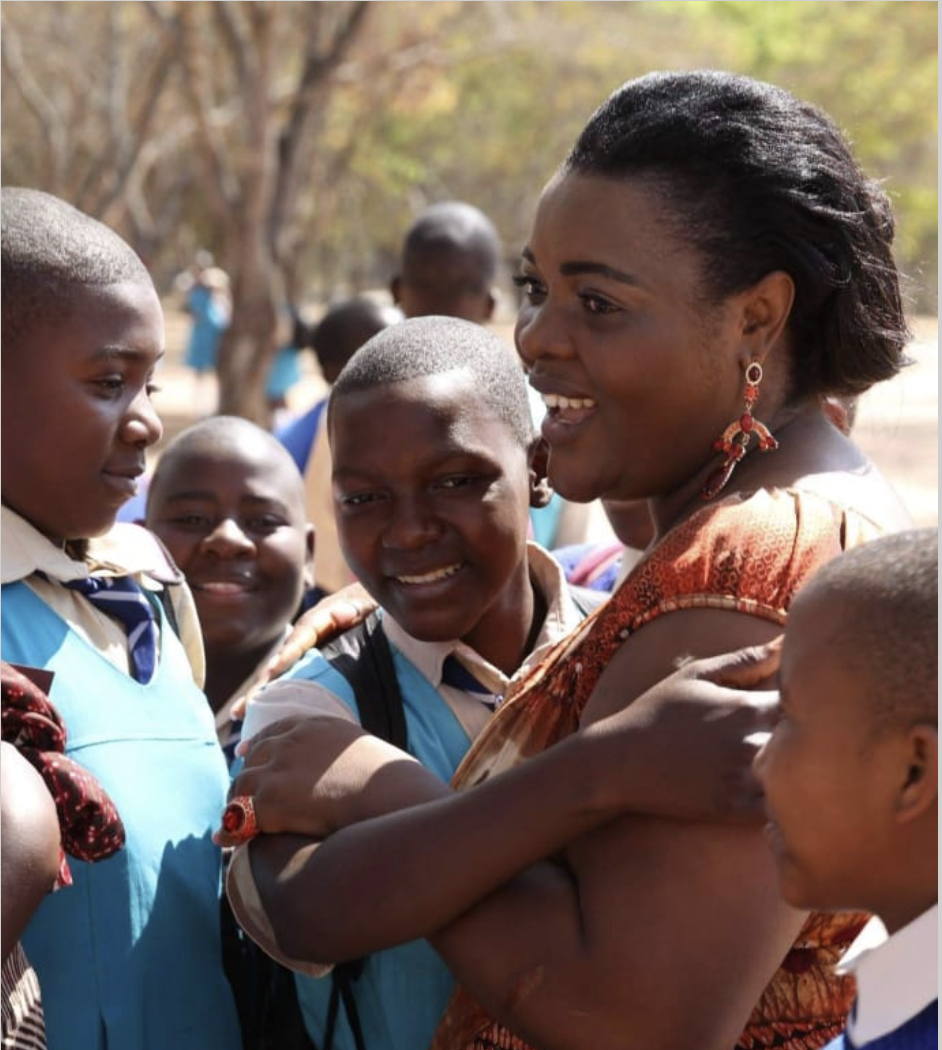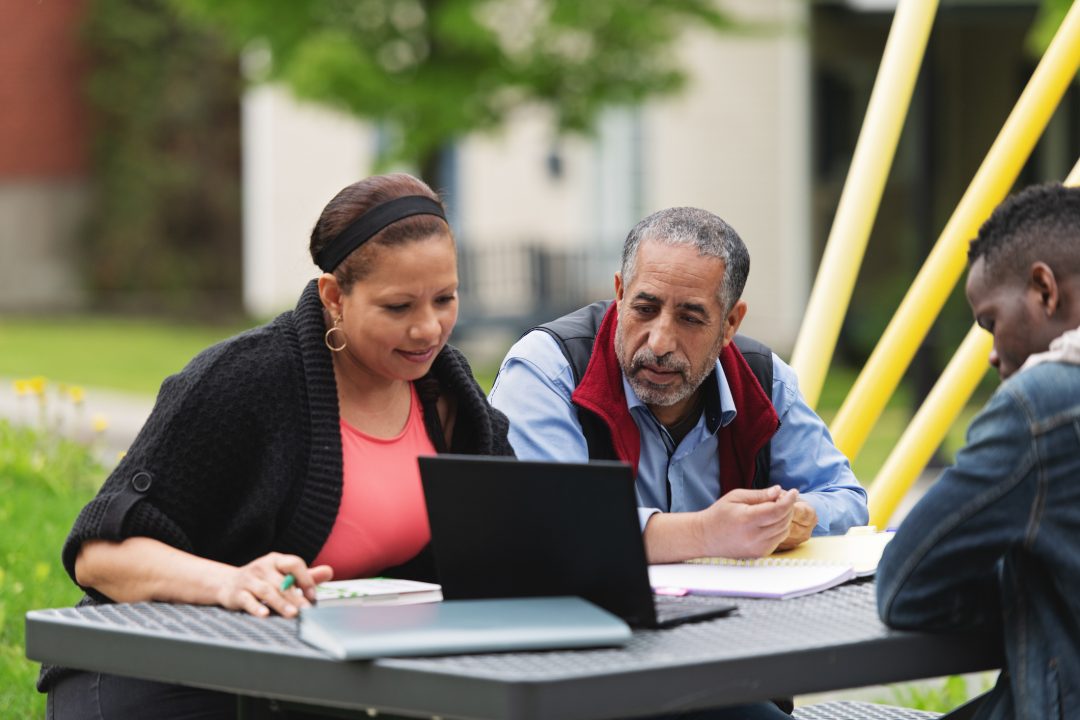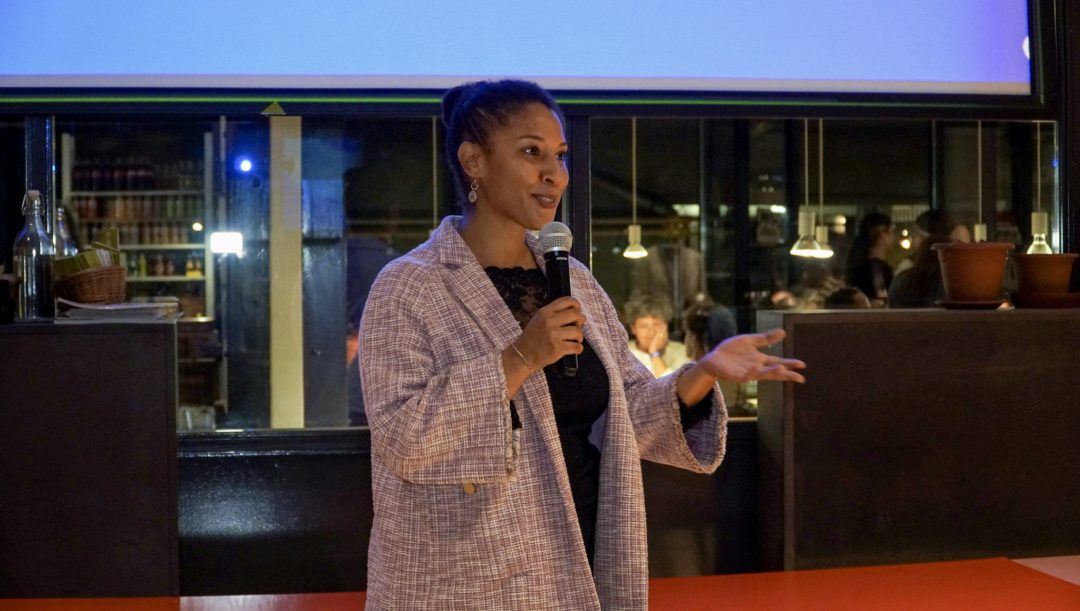When Marie-Claire N. Kuja was growing up, menstruation was a taboo – she reached her adolescence knowing almost nothing about it.
In her school in rural Cameroon, she noticed not much was different for her friends. They would often miss classes on account of their period, and lacking access to pads or tampons, they were using pieces of cloth as substitutes.
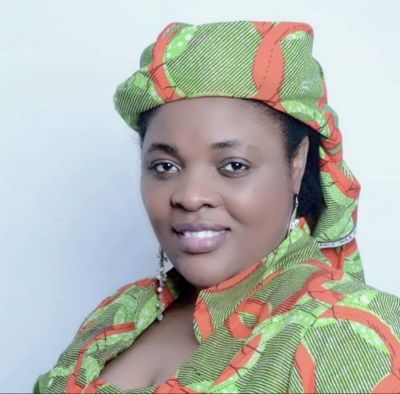
Many years later, Marie-Claire received a scholarship to study in the US. The remarkable difference in access to sanitary products stunned her – she could not stop thinking about the other girls back in her home country, who still could not afford them.
‘This question became very nagging in my head throughout my studies – what about the girls I left behind?”
Even 10 years later, after completing her studies and while working as a nurse in New York, the question remained – how to give back to her community back home?
‘In that moment, I decided I will not continue to just feel sorry about it, I will do something about it.’ says the founder.
Kuja EcoPads is born
This was the beginning of Kuja Eco Pads. For her birthday, Marie-Claire asked friends and family to skip gifts and instead give her money – money which she saved and sent to Cameroon, to a team she formed, asking for one thing – to use it to buy sanitary pads for girls in orphanages.
The positive feedback she received overwhelmed and moved her, and that’s why she decided to first start a non-for-profit, collecting sanitary products to give out, reaching 5000 girls in Cameroon.
Her initial plan was to collect pads to donate, but soon she understood the best was to produce them in Cameroon, and make them available to girls at all times. Looking for the most sustainable option, Marie-Claire decided to produce pads from banana stem fibers instead of plastic.
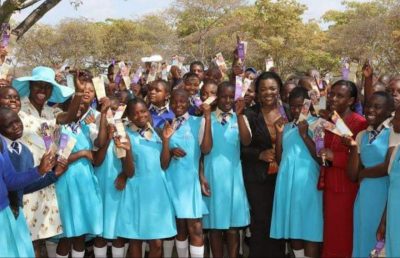
Today, Kuja Eco Pads continues their mission to create ‘menstrual products that are good for the body, the community & the environment in a sustainable and responsible way’, as written on their website.
Kuja hires local women as sales representatives, helping them to support themselves and their families. Moreover, the company also offers health education to young women, aiming to end the stigma surrounding female reproductive health.
Kuja EcoPads’ experience
We asked Marie-Claire some advice for other entrepreneurs.
In difficult times, learn from your failures and always think back to your ‘why’. Her mission to help women and girls of her country is what always kept her going, she says.
Also, we were happy to learn that the Bridge for Billions program helped her grow as a person and entrepreneur.
Marie-Claire took part to the Women Innovators in WASH program, an incubation program powered by Grundfos and Bridge for Billions, aiming to support women entrepreneurs in Africa with an innovative business project in the water, sanitation and hygiene sectors.
The program introduced her to her mentor, with whom she continues to collaborate to this day. Currently they are working on a campaign called One Million Girls, aiming to distribute a year’s worth of sanitary products to a million girls in Cameroon and DRC.
Want to support this incredible mission which will surely improve the lives of young women? Kuja Eco Pads is currently collecting donations – click here to donate and join this inspiring mission.
